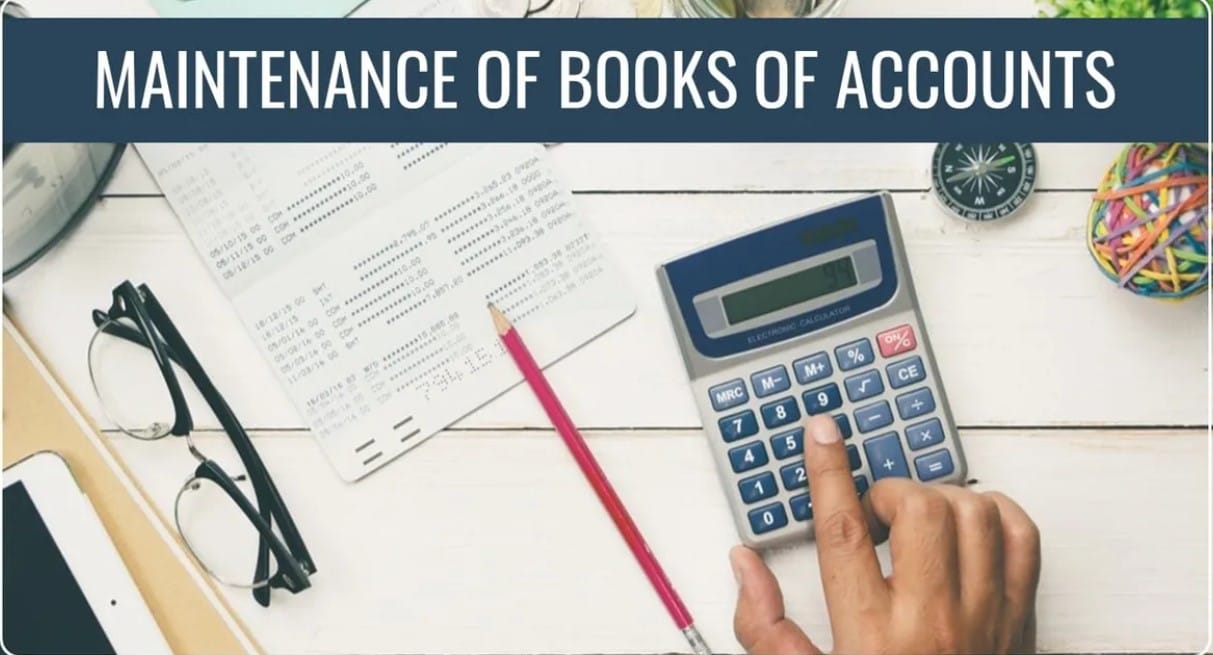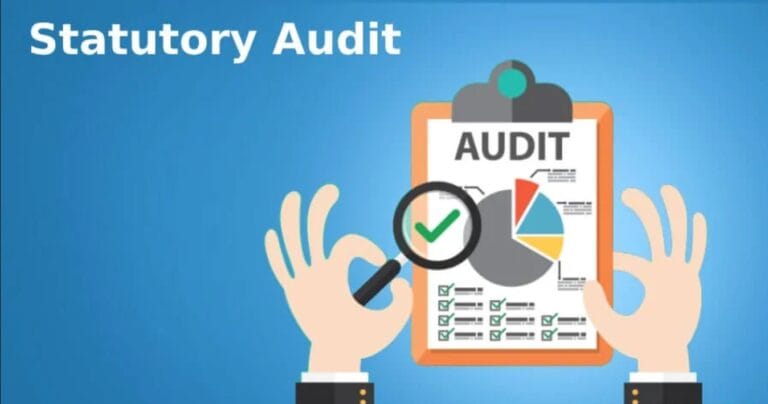The maintenance of books of accounts under the Insolvency and Bankruptcy Code (IBC) is a critical process for ensuring transparency and accountability during the corporate insolvency resolution process. Here’s a detailed overview of the requirements for maintaining books of accounts of Corporate Debtor (CD) undergoing CIRP process, and the best practices for the same in the industry:
1. Legal Requirements
The IBC mandates specific requirements for maintaining books of accounts during the insolvency process:
- Section 17 of the IBC: Upon the appointment of an Interim Resolution Professional (IRP), the powers that were vested with the board of directors or management of the corporate debtor stands suspended, and accordingly, the IRP takes over management of the corporate debtor’s business, which includes the responsibility for maintaining the books of accounts.
- Section 18 of the IBC: As per this section, the IRP is also vested with the responsibility to take control and custody of all the assets of the corporate debtor, which the later owns and have legal title to take use of the same, including their financial and accounting records.
2. Role of the Interim Resolution Professional (IRP) and Resolution Professional (RP)
The IRP and subsequently the RP play a pivotal and indispensable role in the management of the corporate debtor’s accounts. Their actions and decisions significantly influence the outcome of the insolvency process:
- Initial Assessment: The IRP must collect all financial statements, audit reports, and related documents from the corporate debtor to assess the financial position.
- Continuity of Records: The RP must ensure that the books of accounts are updated regularly to reflect all financial transactions during the insolvency process. This includes maintaining records of claims received from creditors and payments made to operational and financial creditors.
3. Accounting Standards and Practices
The maintenance of books of accounts should comply with the prevailing accounting standards in India, such as the Indian Accounting Standards (Ind AS) or Accounting Standards (AS):
- Accrual Basis: Accounts should be maintained on an accrual basis, wherein the income and expenses be accounted, when they are incurred, instead of when the same is paid/setoff.
- Prudence: Ensure that all potential liabilities are recognized, and provisions are made for doubtful debts and contingent liabilities.
4. Documentation and Record-Keeping
Proper documentation and record-keeping are essential for maintaining books of accounts under the IBC:
- Vouchers and Invoices: Ensure that all financial transactions are supported by appropriate vouchers and invoices.
- Bank Statements: Regularly reconcile bank statements with the books of accounts to ensure accuracy.
- Claims Register: Maintain a detailed register of claims submitted by creditors, including the status of the creditor, its nature, the amount of claim, with detailed breakup, and also the amount of claim a admitted and its status.
5. Detailed Steps for Maintaining Books of Accounts
A. Pre-Appointment of IRP/RP
- Handover Process: Before the IRP/RP takes charge, there should be a structured handover process where the existing management provides all financial records and documents to the IRP.
- Inventory of Records: The IRP should prepare an inventory of all books of accounts, financial statements, audit reports, and other relevant documents received.
B. During the IRP Period
- Taking Control: The IRP must immediately take control of the corporate debtor’s books of accounts, financial records, and assets.
- Verification: The IRP should verify the accuracy and completeness of the financial records. Any discrepancies should be noted, and corrective measures should be initiated.
C. Transition to RP
- Smooth Transition: When transitioning from IRP to RP, ensure a smooth handover of financial records and an update on the status of the books of accounts.
- Continuous Monitoring: The RP should continuously monitor and update the books of accounts to reflect ongoing financial activities accurately.
6. Specific Accounting Entries and Adjustments
- Claims and Liabilities: Record all claims submitted by creditors in the books of accounts. This includes updating the ledger to reflect acknowledged claims and contested claims separately.
- Provision for Contingencies: Create provisions for potential liabilities and contingencies. This involves estimating possible losses and ensuring they are adequately reflected in the accounts.
- Asset Valuation: Re-assess the valuation of the corporate debtor’s assets. This may involve revaluations, impairment testing, and adjustments to ensure the assets are fairly presented.
7. Financial Reporting and Disclosures
- Periodic Financial Statements: Prepare and present financial statements periodically, typically before CoC meetings. The financial statement comprise of the balance sheet, statement of profit & loss account, and cash flow statement.
- Interim Reporting: Depending on the duration of the insolvency process, interim financial statements may be required. These should be prepared with the same rigor as annual financial statements.
- Notes and Disclosures: Ensure that all notes to accounts and disclosures are comprehensive, providing clarity on the status of the insolvency process, claims, assets, and liabilities.
8. Audit and Assurance
- Statutory Audit: Engage statutory auditors to audit the books of accounts during the insolvency period. This provides an independent assessment of the financial records.
- Special Audits: In some cases, special audits may be required to investigate specific issues, such as fraudulent transactions or significant discrepancies in the records.
9. Communication with Stakeholders
- Creditors: Maintain open communication with creditors regarding the status of their claims and the financial health of the corporate debtor.
- CoC Meetings: Present financial updates during CoC meetings, which tends to provide them with a clear picture of the current financial status of the corporate debtor and any significant changes.
- Regulatory Authorities: Ensure compliance with reporting requirements to regulatory authorities such as the Registrar of Companies (RoC) and the Insolvency and Bankruptcy Board of India (IBBI).
10. Use of Technology and Digital Tools
- Accounting Software: Utilize advanced accounting software to manage and maintain the books of accounts efficiently. These tools can automate entries, generate reports, and ensure accuracy.
- Data Security: Implement dynamic data security measures in order to protect financial records of the corporate debtor, from any unauthorized access or cyber threats.
- Blockchain Technology: Blockchain technology can also be considered for the maintenance of immutable records of transactions, enhancing transparency and trust.
11. Training and Capacity Building
- Team Training: Ensure that the accounting team is well-trained in handling the specific requirements of maintaining books of accounts under the IBC.
- Continuous Learning: Keeping updated with the latest developments in accounting standards, regulatory changes, and best practices in insolvency accounting.
12. Ethical Considerations and Professional Judgment
- Integrity and Objectivity: Maintain the highest standards of integrity and objectivity in recording and reporting financial information.
- Conflict of Interest: Avoid any conflicts of interest that may compromise the accuracy and fairness of the financial records.
- Professional Skepticism: Exercise professional skepticism, especially when dealing with complex transactions or unusual financial activities.
13. Reporting and Compliance
The RP must ensure regular reporting and compliance with statutory requirements:
- Financial Statements: Prepare and present financial statements at regular intervals, including during the Committee of Creditors (CoC) meetings. The CoC, being a key stakeholder, reviews these statements to ensure transparency and fairness in the resolution process.
- Audit: Ensure that the books of accounts are audited as required by the IBC. The audit should cover all aspects of financial management during the insolvency process.
14. Challenges and Solutions
Maintaining books of accounts under the IBC can present various challenges, including:
- Inadequate Records: In cases where the corporate debtor’s records are incomplete or poorly maintained, the RP must take steps to reconstruct the accounts using available data and external confirmations.
- Complex Transactions: The RP must ensure proper documentation and understanding of complex financial transactions that may have led to the insolvency.
15. Best Practices
Implementing best practices can enhance the accuracy and reliability of the financial records:
- Regular Updates: Update the books of accounts regularly to ensure real-time accuracy.
- Transparency: Maintain transparency in all financial dealings to build trust among creditors and stakeholders.
- Use of Technology: Employ accounting software and tools to automate and streamline the maintenance of books of accounts.
The maintenance of books of accounts of a Corporate Debtor under the IBC is fundamental to the effective management of the insolvency process. Adhering to legal requirements, and accounting standards, ensures the presentation of accurate and reliable financial information, thereby facilitating a fair and transparent resolution process. The IRP and RP must diligently manage and maintain these records to uphold the integrity of the insolvency proceedings.
Maintaining books of accounts under the IBC is a complex yet essential task that ensures the integrity and transparency of the insolvency resolution process. By adhering to legal requirements, employing best practices, leveraging technology, and upholding ethical standards, the IRP/RP can effectively manage the financial records of the corporate debtor, facilitating a smoother resolution process and fostering trust among stakeholders.
At Ujjwal Gupta & Co
We, at Ujjwal Gupta & Co, are dedicated to delivering personalized, high-quality solutions tailored to meet your financial and business needs. With our team of professionals and a client-first approach, we ensure that every challenge is met with expert guidance and strategic insight.
We are dedicated to ensuring your business’s success by providing best service practice available in the industry and that too at a cost effective pricing. Our team of experts is excited to work with you and provide the support you need to thrive in the Indian business landscape.
Our only motive is to create Value for Our Clients and accordingly, have a Client Value System at our Office.
So, let us help you navigate the complexities of finance and compliance, empowering you to focus on what matters most — growing your business. Get in touch today, and take the first step towards financial peace of mind.
Proper maintenance of books of accounts is essential because it provides a clear record of the corporate debtor’s financial activities. This helps the Resolution Professional (RP), creditors, and the National Company Law Tribunal (NCLT) assess the financial health of the company, identify any suspicious transactions, and evaluate the debtor’s solvency.
During the Corporate Insolvency Resolution Process (CIRP), the Resolution Professional (RP) takes over the management of the corporate debtor’s affairs. While the corporate debtor’s management may have initially maintained the books, the RP ensures that all records are up-to-date and accurate. If books are not properly maintained, the RP may be held accountable for overseeing this responsibility.
The books of accounts required under the IBC and the Companies Act, 2013, include:
- Balance sheet.
- Profit and loss statement.
- Cash flow statement.
- General ledger and subsidiary ledgers.
- Invoices, receipts, and vouchers.
- Bank statements and reconciliation reports.
- Loan agreements and details of outstanding liabilities.
- Inventory records (if applicable).
Under the Companies Act, 2013, the books of accounts of a corporate debtor must be maintained for a minimum period of eight years preceding the commencement of insolvency proceedings. This allows the Resolution Professional, Committee of Creditors (CoC), and auditors to examine past financial transactions, if needed.
If a corporate debtor fails to maintain proper books of accounts, it can lead to several consequences:
- The Resolution Professional may face difficulties in preparing the information memorandum, which is critical for the insolvency process.
- It may lead to penalties for non-compliance under the Companies Act, 2013.
- In extreme cases, mismanagement or fraudulent activities could be inferred, potentially resulting in legal actions against the company’s management.
- The NCLT may consider it a factor in approving or rejecting resolution plans.
Properly maintained books of accounts provide transparency and accuracy, which are critical for:
- Evaluating the company’s financial position.
- Valuing its assets and liabilities.
- Preparing the information memorandum for potential resolution applicants.
- Preventing disputes among creditors by providing a clear financial record.
- Facilitating a quicker and smoother resolution process.
The RP is responsible for taking control of the corporate debtor’s assets and records once the insolvency process begins. They ensure that the books of accounts are accurate, up-to-date, and properly maintained. The RP may also seek the assistance of accountants or auditors to verify the books and address any discrepancies.
If the RP or statutory auditors identify discrepancies or fraudulent activities in the books of accounts, they are required to:
- Report the matter to the Committee of Creditors (CoC) and the NCLT.
- Seek legal recourse to recover lost assets or reverse fraudulent transactions.
- Take necessary steps to file complaints with appropriate authorities, such as the Institute of Chartered Accountants of India (ICAI) or regulatory bodies, if fraud or negligence is involved.
Yes, the Companies Act, 2013 allows for the maintenance of books of accounts in electronic form. However, certain guidelines must be followed, such as:
- The data must be stored in servers physically located in India.
- The books must be easily accessible and capable of being reproduced into paper form.
- Adequate measures should be in place to prevent unauthorized access or tampering of data.
During the CIRP, auditors play a key role in reviewing the corporate debtor’s financial statements to ensure that the books of accounts:
- Accurately reflect the company’s financial position.
- Comply with accounting standards and legal requirements.
- Are free from material misstatements or fraudulent transactions. Auditors may work alongside the RP to prepare audit reports, which are crucial for the CoC in making decisions about the company’s future, whether through a resolution plan or liquidation.
Why Choose UGC?

Client Centric Approach
Client is the key driver of our service offerings. Our approach to service offerings is based on a client centric and customized approach. Our specialized teams are a mix of technical and industry experience in order to serve clientele for their specific needs.

Team Work
We have built high performing teams supported by strong work ethic. Our team is a mix of experts, professionals and support staff from technical and varied academic, social and ethnic backgrounds. We believe diversification plays a vital role in motivating the team.

Quick Turnaround
We always endeavour for a quick turnaround time to serve our clientele. We are supported by an experienced and client focussed support teams to offer timely services to our clientele. In case of any business exigencies and time sensitive service requirements, you can always count on us.

Open Communications
We believe that open communication is the core principle in order to demonstrate trust, build long lasting and valuable relationships with clientele. We are committed to ensuring transparency in communication, service offerings and delivery. We provide professional services to our clients.

Client Value System
We value for the Client time and thus, we offer services that are value for money. Quality professional services are provided to our clients, so that they are able to achieve their desired results. We are a quality trademark in the industry and thus, our clients count on us always.

Quality in Delivering Work
Our service offerings are driven by quality and reviews at every level. We strive to provide a qualitative and value-added delivery to our clientele. At all times, we endeavour to provide exceptional client service by meeting client expectations and driving client satisfaction.




















